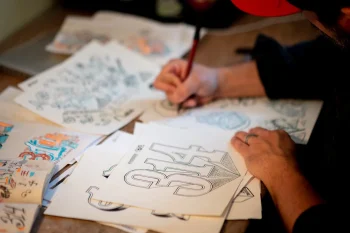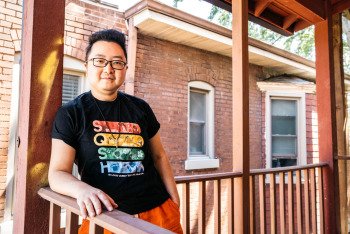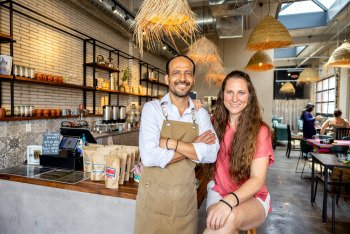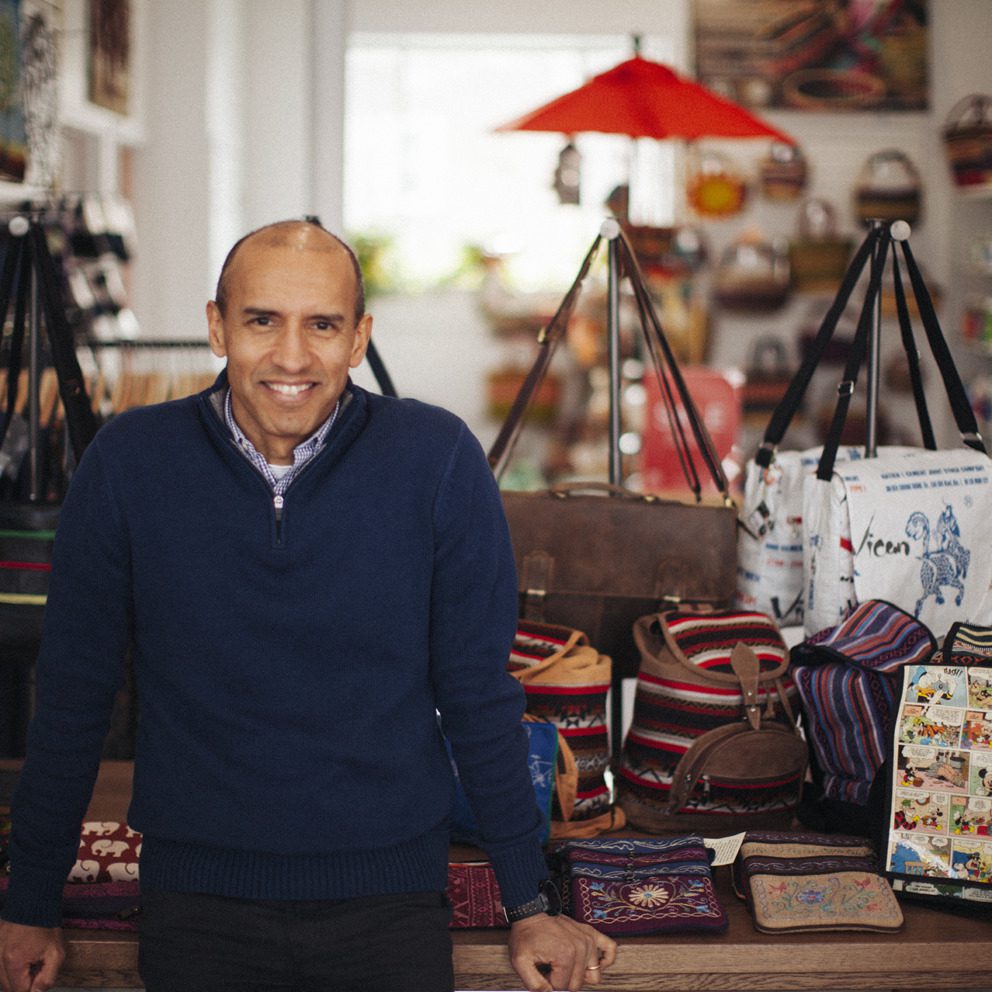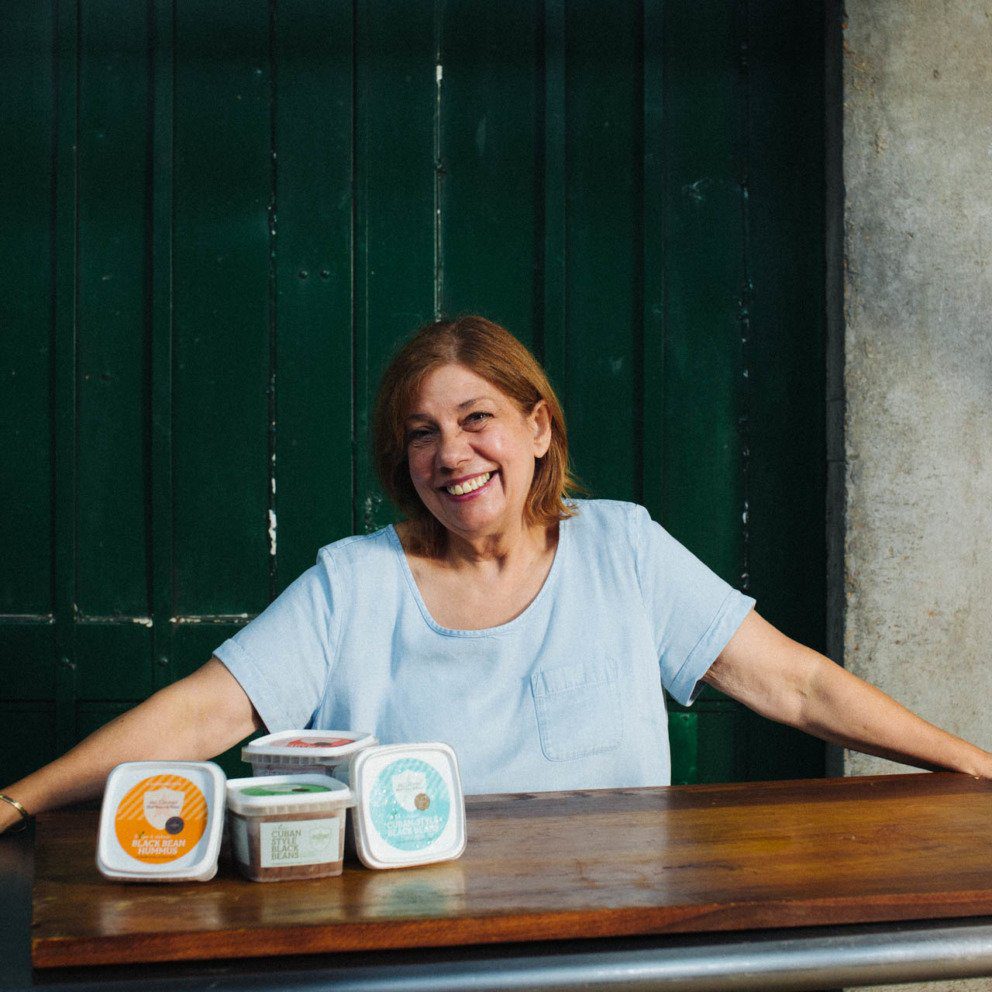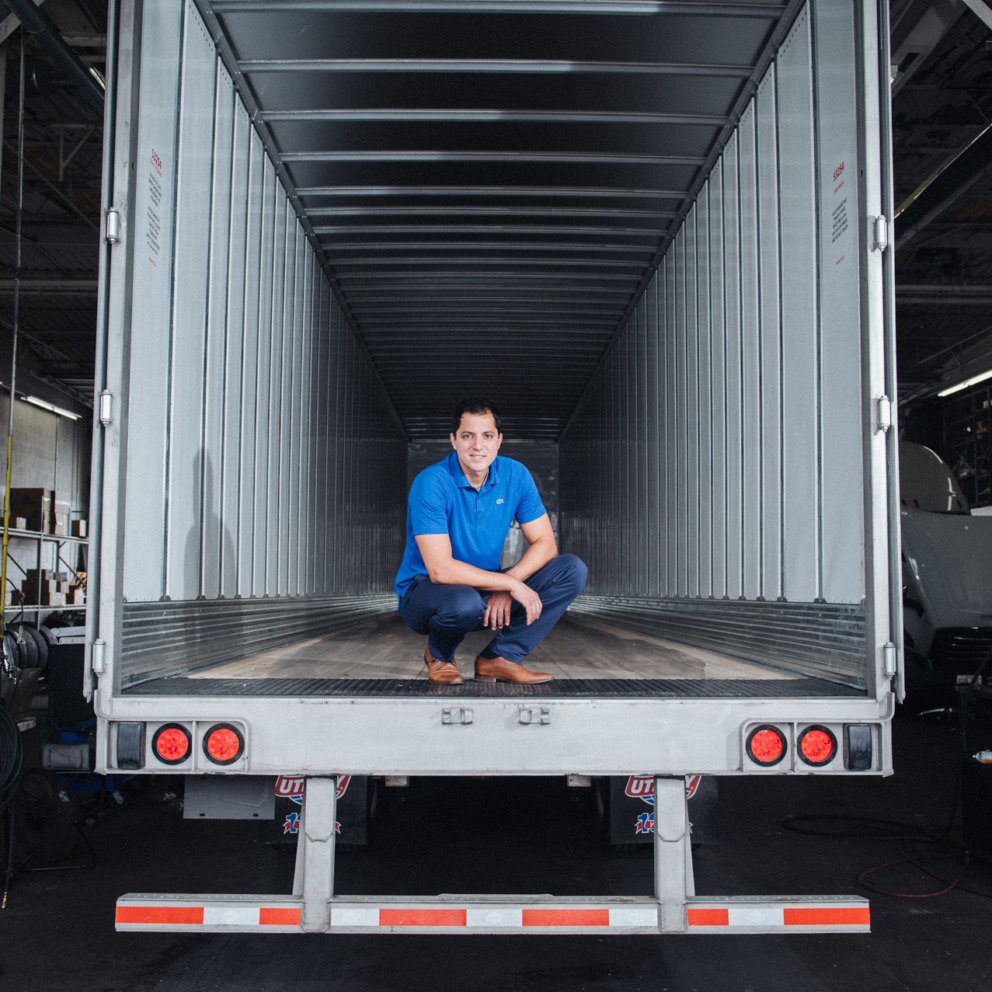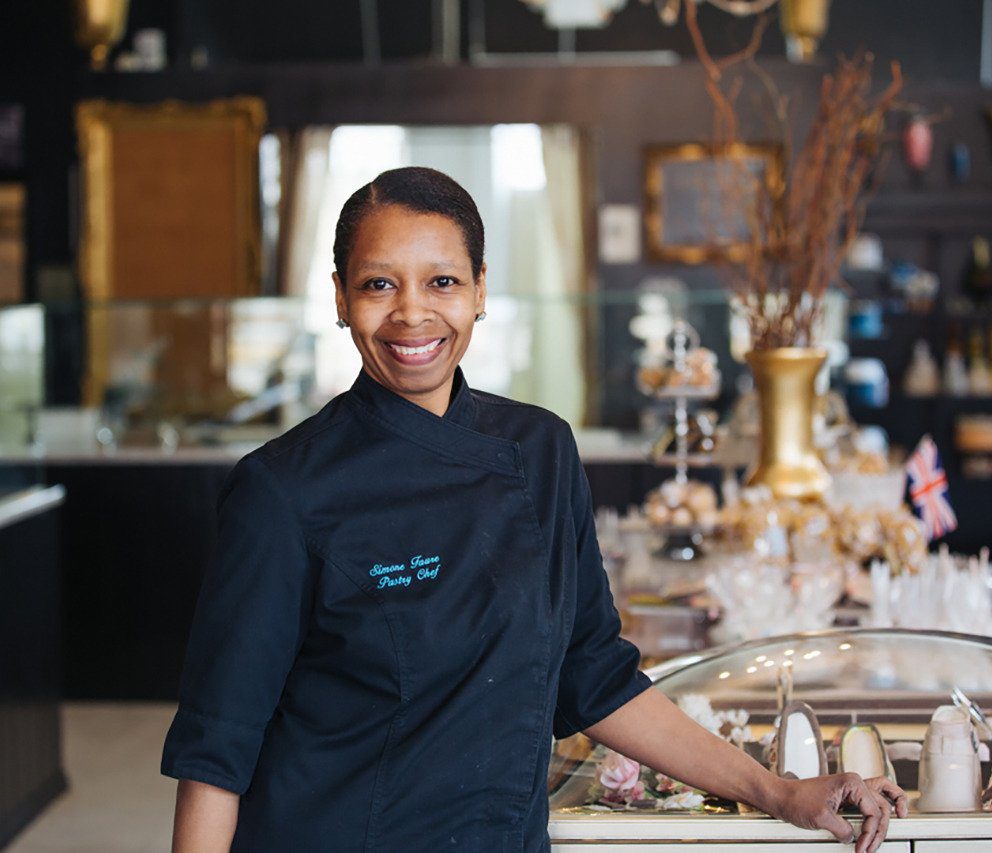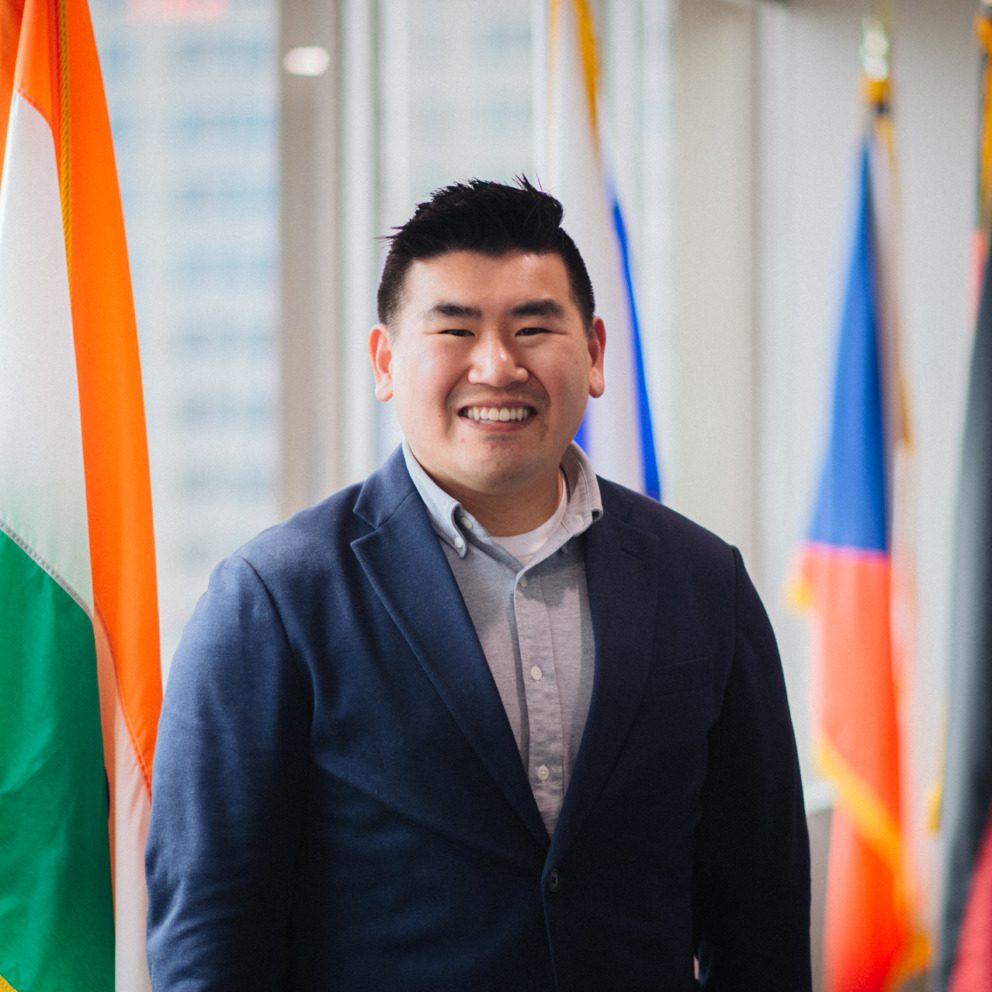A Global Community
As the St. Louis region recruits top international talent to its companies, Susan Gobbo is building a support system for the families that follow.
Susan Gobbo throws open the door, genuinely happy to see who’s on the other side. “Hi, how are you?” she enthuses, welcoming woman after woman into her Wildwood home with a warm hug. She earnestly asks about their volunteer work, their children’s big soccer games and their husbands’ promotions, catching up on life before it’s time to prepare the day’s meal, as many family members do.
They’re not related by blood, but Gobbo has created a family of sorts with more than 300 women in her International Spouses Meetup Group. Consisting of women who have moved to St. Louis from all around the globe, the group fosters bonds among those looking for friendship and guidance as they navigate their new lives.
At first glance, these women are in good company — between 2017 and 2018, data from the U.S. Census Bureau shows that the St. Louis region’s foreign-born population grew by 4.1 percent, or by 5,640 people. Saint Louis University associate professor of sociology Ness Sandoval studies population changes and tells St. Louis Public Radio that St. Louis appears to be the third-fastest-growing major metropolitan area in the United States for foreign-born individuals. One reason for that is many St. Louis-based corporations and startups recruit specialized talent from around the world to complement their local workforces.
The influx of immigrant talent certainly makes St. Louis stronger. But building a life in another country is a unique experience and can be difficult, especially for spouses who are supporting their recruited partners. Often called “trailing spouses,” these people — typically women — frequently halt their own careers and endeavors to encourage their partners to take great opportunities and help other family members get settled.
Gobbo understands this from her own experience. Originally from Brazil, Gobbo was a physical therapist at the top of her field in one of South America’s best hospitals. But when her husband Mauricio was transferred to the United States for a career opportunity years ago, Gobbo was tied to his visa which restricted her from working here.
“I was very active, working in the hospital weekends, nights and during the day. And suddenly [after moving to St. Louis] I’m at home doing nothing. So it was a shock for me, like, ‘What am I going to do now?’” Gobbo explains. “Our profession is part of our identity. In Brazil I was ‘Dr. Susan,’ and suddenly here I am ‘Laura’s mom,’ ‘Mauricio’s wife,’ but how about me?”
Committing herself to learning multiple languages, volunteering with cultural nonprofit Viva Brasil STL and researching the effects of culture shock, Gobbo talked to other trailing spouses and found that they were experiencing something similar; feelings of isolation, depression, fear and marginalization are common among women who sacrifice their lives to relocate to new countries. And while many corporations offer local acclimation programs to their employees, partners often are forced to explore the city and figure out daily life on their own.
“I found a world that nobody was talking about. The companies bring the families, they have training for the employees, but how about the spouses?” Gobbo says. “So that was the click. I have to do something to help them.”
To figure out how she might help the thousands of women who relocate to St. Louis every year, Gobbo connected with the St. Louis Mosaic Project, an initiative from the St. Louis Economic Development Partnership and World Trade Center St. Louis that focuses on growing the local economy and culture by increasing the number of foreign-born residents. With a friend there, she founded the International Spouses Meetup Group, which is open to women who are trailing spouses throughout the greater St. Louis region.
The community started out small — just a few people at first, Gobbo says — but now has become a warm refuge for close to 400 women from more than 60 countries. Gobbo and others coordinate a variety of activities, events and discussions for the members — everything from visiting landmarks like the Saint Louis Art Museum and the Gateway Arch to doing yoga in a park or demonstrating a favorite recipe from a member’s home country. The gatherings serve to acclimate group members to St. Louis, provide a judgement-free space to figure things out and share culture.
“Sometimes people say, ‘It’s just meetings.’ But when we have these meetings, we are all sitting in the same boat,” Gobbo says. “We have the same experience and we all have our accents, so we feel comfortable. Of course there are language barriers and cultural barriers. But the more you learn the culture, the more you learn the language, you start to mingle.”
“Sometimes we make jokes and we laugh at ourselves. We share experiences here like, ‘Oh, that happened to me.’” And we start laughing, ‘Oh, that happened to me, as well.’ So it’s a good way to relax,” Gobbo continues.
The success of the International Spouses Meetup Group has encouraged the launch of even more Mosaic Project programs for trailing spouses. A mentoring program, led by Annie Schlafly, pairs international women with St. Louis ladies who provide friendship while guiding the newcomers through daily life tasks like grocery shopping, city services, paperwork and neighborhood exploration. And because a career can be a huge portion of one’s identity, Gobbo also is working with St. Louis-based companies to provide more opportunities to trailing spouses whose visas permit them to work. Gobbo developed a shadowing/internship program for women who want to learn the ins and outs of their profession within an American context; Gobbo says that after the experience, the women feel more confident applying for jobs here and often are hired by the companies they shadow.
All of these programs add up to a stronger St. Louis. Corporations spend a lot of money recruiting international talent to the Gateway City, Gobbo says, so it benefits both the company and the region to ensure that there are supportive acclimation avenues for spouses and families. When all members of a family feel supported in their new city, the recruited spouse typically wants to stay at their company longer, says Gobbo, who adds that she now loves living in St. Louis.
“You have to think about 370 families with kids,” Gobbo says of the International Spouses Meetup Group members. “It’s a lot of people we are helping. I have people coming to me, especially husbands, that say, ‘Now we feel at home. My wife is happy here, we have our group of friends and we feel like we are part of the community.’”
“It’s a good thing for the city because it’s becoming more diverse, more international,” Gobbo continues. “It’s good for the employee to have this opportunity, and it’s good for the whole family.”
Back in Gobbo’s kitchen, about 20 women are warmly greeting each other; some have come to International Spouses Meetup Group gatherings many times, while others are experiencing their first visit. Today they’re here to learn how to make jipijapa ceviche from Lisseth Salgado, who hails from Ecuador. But even more than that, they’ve come for the supportive community that Gobbo has fostered.
Between hugs, Gobbo looks around her home as women from Vietnam, Mexico, Colombia, Nigeria and more trade laughs and cooking tips. She beams while watching these new friendships form.
“I never thought that we would be growing so fast like this,” she says, shaking her head in wonder. “They feel very welcome, and they start bringing their friends and talking about this and spreading the word,” she says.
“It’s wonderful. It’s in my heart.”
Join the Story
- Join the International Spouses Meetup Group or volunteer as a local mentor.
- Help your company hire international talent through the St. Louis Mosaic Project.
- Find immigrant services and information at the International Institute of St. Louis.
- Read about Vega Transport, a growing St. Louis freight company that was founded by two brothers from Bosnia.
